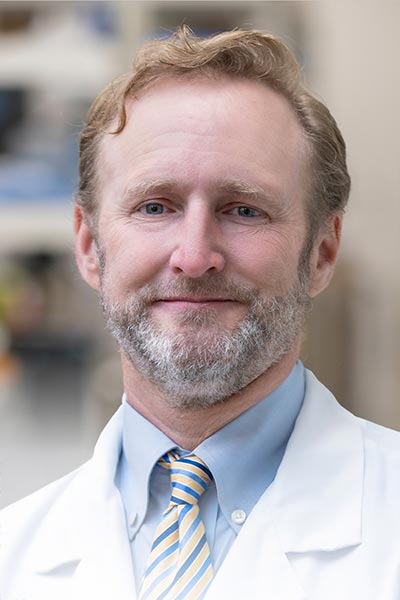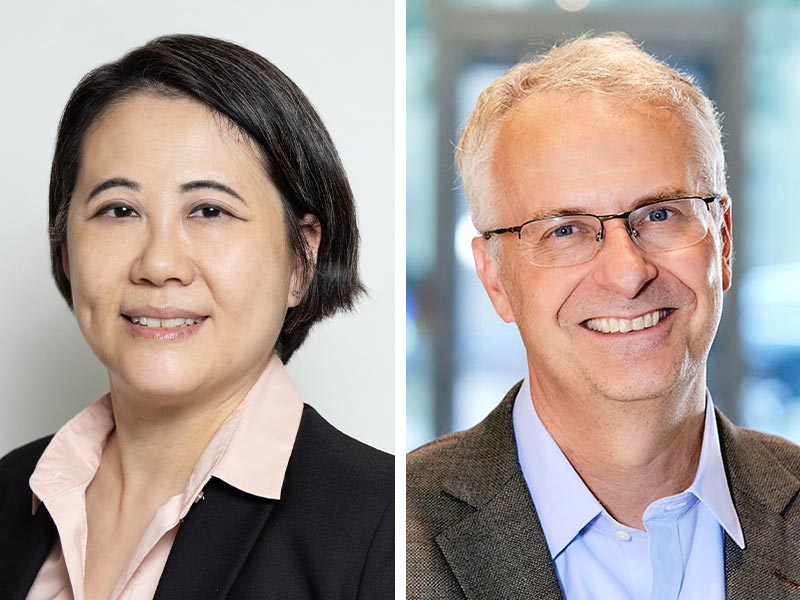Plenary program to conclude Wednesday with predictive oncology, AACR Annual Meeting takeaways
The final day of the AACR Annual Meeting 2025 will feature two Plenary Sessions, including the morning Plenary Session on Opportunities in Predictive Oncology and a closing Plenary Session to showcase the meeting’s key highlights across the continuum of cancer research.
Learn more about Wednesday’s Plenary Sessions below, and refer to the Annual Meeting App and Online Itinerary Planner for the most up-to-date details.
Opportunities in Predictive Oncology
Wednesday, April 30, 8-10 a.m. CT
Arie Crown Theater, McCormick Lakeside Center (Level 2)
Advances in precision oncology continue to push the boundaries of cancer care by integrating biological, computational, and clinical data to predict therapeutic responses and improve outcomes. The fifth Plenary Session at the AACR Annual Meeting 2025—Opportunities in Predictive Oncology—will highlight emerging technologies and multimodal approaches designed to improve personalized cancer treatment, particularly in the challenging space of immunotherapy prediction.

“Precision medicine is a foundational part of our strategy for improving cancer patient outcomes, yet predicting responses to treatments such as immunotherapy remains challenging. Integrating multimodal data at the single-cell and spatial levels represents the forefront of oncology, offering significant potential to better understand tumor biology, treatment resistance, and patient-specific therapeutic strategies,” said Plenary Session Chair David W. Craig, PhD, of City of Hope Comprehensive Cancer Center.
Speakers will present cutting-edge work spanning single-cell master regulators, spatial proteomics, and artificial intelligence-driven modeling, providing a cross section of technologies poised to reshape precision cancer care.
“Cancer researchers, clinical oncologists, computational biologists, and precision medicine specialists will benefit the most, particularly those interested in advanced multimodal modeling, artificial intelligence, and how these techniques are being used to advance precision medicine,” according to Craig, an Annual Meeting program cochair of this year’s conference.
The session will open with Andrea Califano, Dr, FAACR, of Columbia University, who will describe his lab’s pioneering efforts to identify and pharmacologically target master regulators driving cancer at the single-cell level. Califano will share how network-based strategies and multiomics integration—particularly of transcriptional regulatory data—can predict both drug sensitivity and resistance, providing a new framework for pinpointing vulnerabilities in diverse cancers.
With this foundation established, Christina Curtis, PhD, MSc, of Stanford University, will investigate how the combination of diverse data types—spanning genomic, transcriptomic, and proteomic levels—can strengthen predictive analytics and drive advancements in precision medicine.
Bridging biological insights to clinical application, Marleen Kok, MD, PhD, of the Netherlands Cancer Institute, will focus on the dynamics of breast cancer in predicting responses to immunotherapy. Using inflammatory breast cancer as a case study, Kok will examine how tumor behavior and microenvironmental factors influence the efficacy of immune checkpoint blockade, and explore combination strategies designed to enhance treatment outcomes.
Closing the session, Trey Ideker, PhD, of the University of California, San Diego, will discuss his lab’s development of digital tumors—computational models that capture cancer cell structure and function in remarkable detail. Ideker will demonstrate how these models can define mechanisms of treatment resistance, guide drug design, and validate therapeutic strategies. He will also introduce hallmarks of predictive oncology, a set of community-driven standards aimed at ensuring clinical relevance and reproducibility of efforts as the field advances.
“Overall, the session will discuss novel computational, biological, and clinical methodologies for enhancing predictive modeling and personalized cancer treatment, as well as highlight multimodal approaches, including single-cell master regulators and spatial proteomics, to advance precision oncology, especially in predicting immunotherapy responses,” noted Craig.
AACR Annual Meeting 2025 Highlights: Vision for the Future
Wednesday, April 30, 12:10-1:30 p.m. CT
Arie Crown Theater, McCormick Lakeside Center (Level 2)
The meeting will conclude with the AACR Annual Meeting 2025 Highlights: Vision for the Future Plenary Session, which was organized by this year’s Annual Meeting program chairs, AACR President Lillian L. Siu, MD, FAACR, of Princess Margaret Cancer Centre, and Matthew G. Vander Heiden, MD, PhD, of Koch Institute for Integrative Cancer Research at MIT.

During this session, three speakers will shed light on some of the biggest discoveries reported during the meeting across the entire spectrum of cancer research, as well as their thoughts on how these discoveries will impact the future of cancer research and treatment.
Cory Abate-Shen, PhD, of Columbia University, will highlight the key takeaways in basic cancer science and translational research. Abate-Shen served on the AACR Annual Meeting 2025 Program Committee.
Scarlett Lin Gomez, PhD, MPH, of University of California, San Francisco, will discuss significant findings in prevention, early detection, population sciences, and disparities research.
Jayesh Desai, MBBS, of Peter MacCallum Cancer Centre, will summarize the potentially practice-changing clinical trial results and pivotal clinical research reported at the meeting. Desai is cochair of the AACR Annual Meeting 2025 Clinical Trials Committee.
“Each speaker has been combing through the program in real-time, attending different sessions and selecting the most significant learnings from those sessions,” said Siu. “It’s a lot of work but a very important task—to capture the essence from all the meeting sessions in that field and concisely summarize the most exciting findings and their impact.
“It will be a very, very important session for AACR members at all career stages to attend,” Siu added.
Vander Heiden noted that “the session not only offers highlights within each of these three categories but also offers the opportunity for attendees to understand the intersection of these different fields and how they influence one another.
“It all goes back to the meeting theme—the continuum of innovation for impact—because innovation truly lies at the intersection of science and medicine.”
More from the AACR Annual Meeting 2025
View a photo gallery of scenes from Chicago, continue the conversation on social media using the hashtag #AACR25, and read more coverage in AACR Annual Meeting News.

